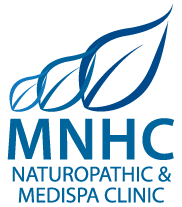More and more patients suffering from asthma have gradually increased, in the past 10 years; more distressing among young adults and children. Scientists, doctors, and natural healthcare practitioners around the world are studying this epidemic and are concern about the root causes of this illness and very alarm on the long-term effects of anti-asthma drugs.
From a Traditional Chinese Medicine (TCM) perspective, asthma affects the Lung, Kidney and Spleen, is an immune-system-related respiratory illness that blocks and inflames the breathing passages making it tremendously difficult to breath. The deficiency of Qi (Vital Energy) in the Lung, Spleen and Kidney can generate retention of phlegm ascending to the throat creating chronic or recurrent asthma.
Asthma can be cause by:
External allergic reaction to a foreign substance (allergens) such as certain foods, preservatives, additive, seasonal weather.
External allergic reaction to a foreign substance (allergens) such as certain foods, preservatives, additive, seasonal weather.
Inherent is not seasonal nor an allergic type of asthma, it may cause by air pollutants, smoke, strong order, emotional stress, physical exertion, cold dump weather, changes in temperature or humidity. Often, an episode of inherent asthma will follow a severe respiratory infection.
Diagnostically, asthma can be seen to involve one of the five causative syndromes:
Retention of Cold-Fluid in the lung: This can occur after a viral respiratory infection, a simple cold, change of weather, prolonged exposure to cold. This condition manifest itself by an aversion to cold, the expelling of thin, white sputum, light white slippery colored tongue, a fever may also be present, headache and sweating.
Retention of Phlegm-Heat in the lung: includes dyspnea (a sign of serious disease of the airway, lungs, or heart) with limited chest congestion, yellow and sticky sputum, and slightly foamy discharge, Some fever, thirst, red tongue with yellow and greasy fur as well as rapid and slippery pulse.
Asthenia of Spleen and Lung Qi: includes cough, aversion to wind, shortness of breath, weak voice and breath sounds, thin sputum, spontaneous sweating, lethargy, poor appetite, loose stools, light-colored tongue with thin, white fur and a soft and thin pulse.
Asthenia of Lung and Kidney Yin: common symptoms are aching and weakness of the limbs, knees, cough accompanied with phlegm, dyspnea and shortness of breath, dizziness and tinnitus, fever, night sweats, red tongue with scant fur and a thin, rapid pulse.
Asthenia of Heart and Kidney Yang: includes averse to cold, with cold extremities, shortness and difficulty of breathing and inhalation, is frequent and limited urine, may feel restless and experience palpitations, cold sweating, is of low spirit, may have crackly lips, purplish tongue with thin and white tongue fur, with weak thin and irregular pulse.
These syndromes tend to represent a progression from mild to critical and may be found in transition or in multiple forms. Acupuncture and TCM are among the modalities that are greatly preferred as a way of treating asthma. The combination of certain acupuncture points depending on the condition and the severeness is been found to be very effective in the treatment of Asthma.
The clinical studies that acupuncture treatments achieved the following goals: reduced the irregular tendency in the bronchi; kept the lungs from contracting at the least little irritant in the air; opened narrowed blood vessels in the lungs; and promoted relaxation and the ability to breathe more fully.
My recommendations are in addition to Acupuncture:
Focus on strengthening the lungs
– Oxygen treatments to support the entire system
– Herbs to clean the lungs first:
– Herb Simmer drink of:
– 1 teaspoon Oregano leaves
– 1 teaspoon of Rosemary
– 1 Clove of garlic
– 2 Bay leaves
– 1 teaspoon Oregano leaves
– 1 teaspoon of Rosemary
– 1 Clove of garlic
– 2 Bay leaves
– Herbs to strengthen the lungs:
– Herb Simmer drink of:
– Small chunk of Elecampagne root, 1/2 ounce of dried root
– Small piece of stem of Ephedra or Ma Huang (Ephedra Sinica)
– 1 teaspoon of Thyme
– 2 Basil leaves
– Herb Simmer drink of:
– Small chunk of Elecampagne root, 1/2 ounce of dried root
– Small piece of stem of Ephedra or Ma Huang (Ephedra Sinica)
– 1 teaspoon of Thyme
– 2 Basil leaves
Acupuncture and Traditional Chinese Medicine is offered at MNHC Naturopathic & Medispa Clinic . For more information on the service, please feel free to give us a call at the clinic: (905)477-0200 or email us at info@mnhc.ca.
Dr Diana ND
Doctor of Naturopathic Medicine

